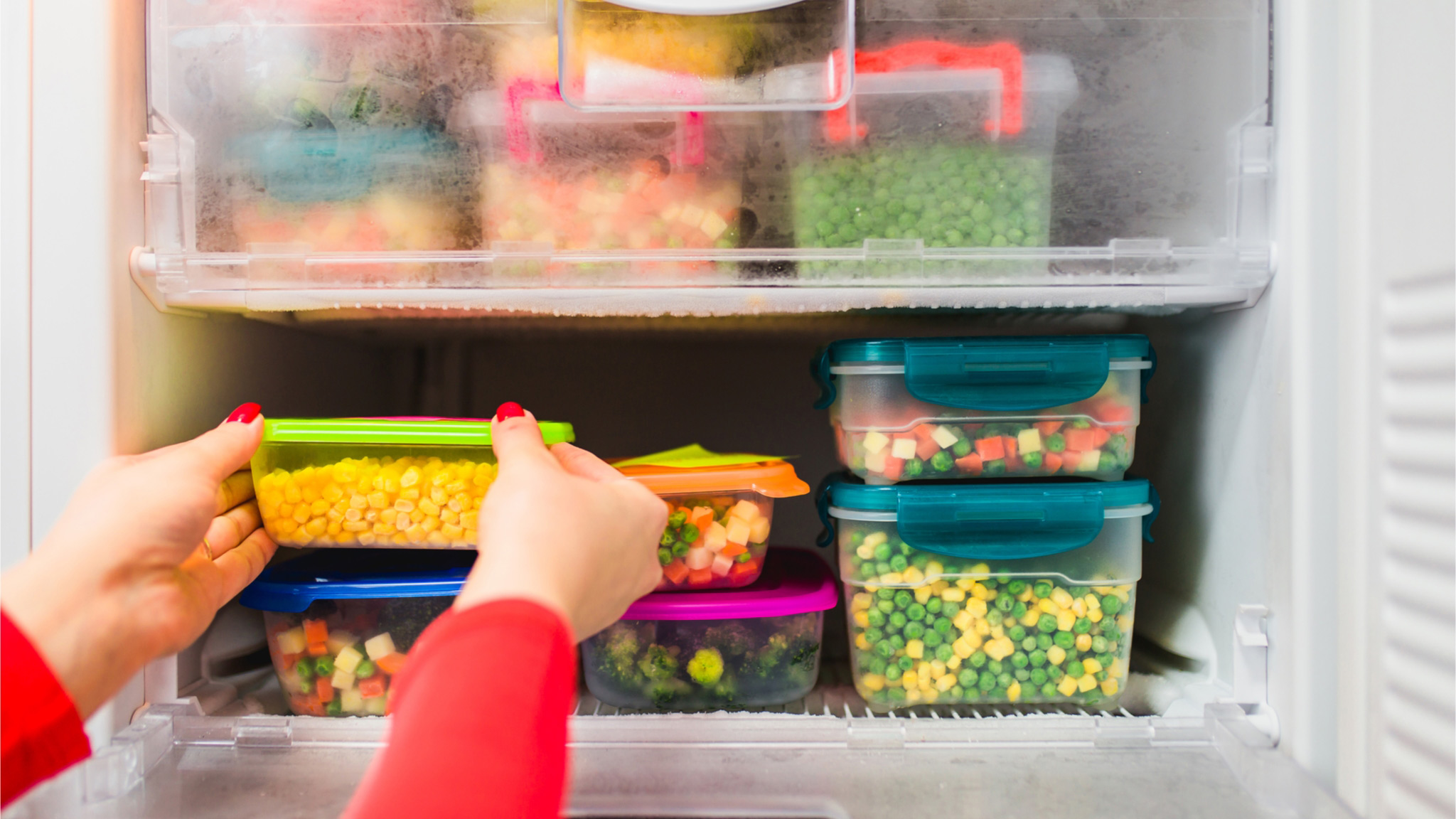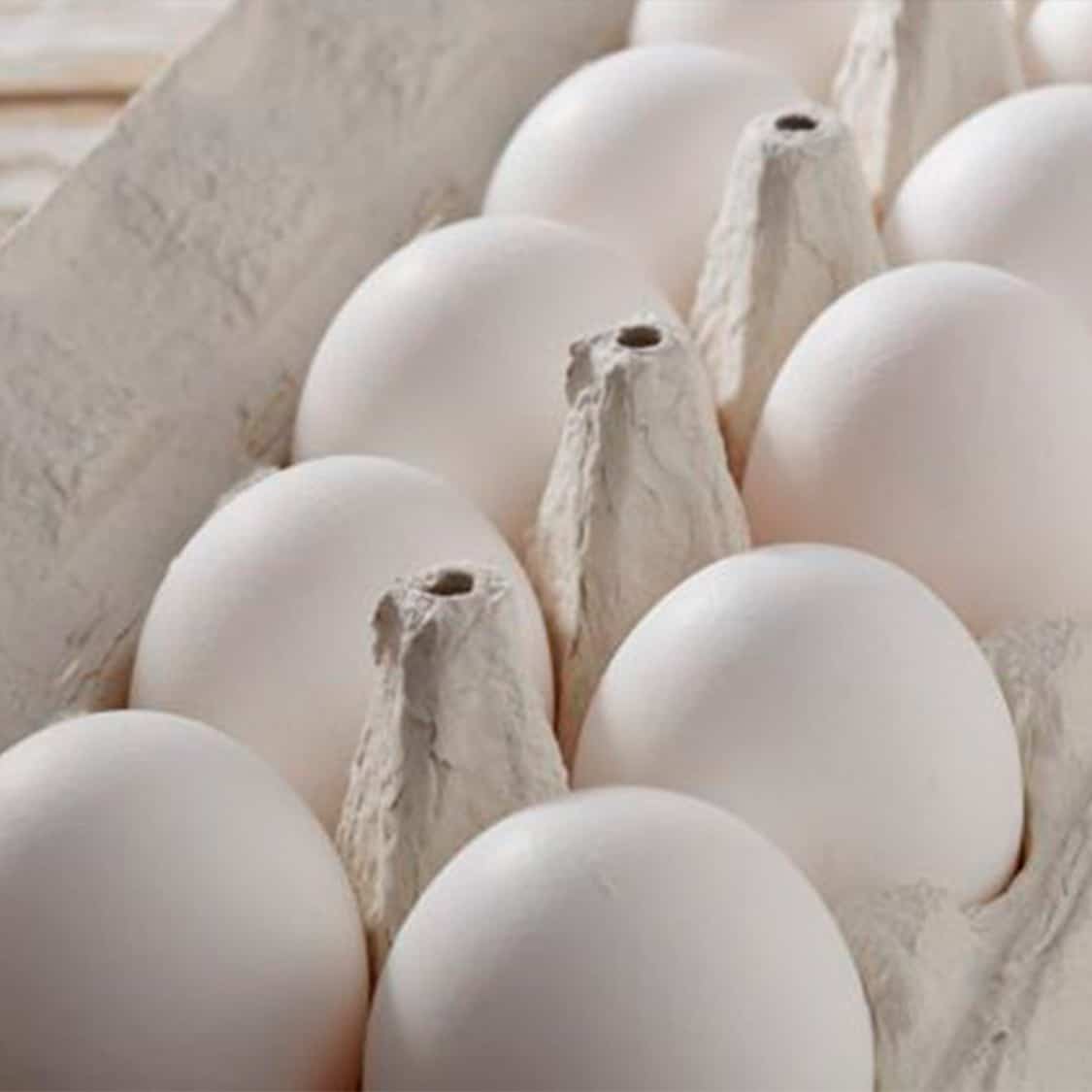Store beaten eggs in an airtight container and refrigerate immediately. Use within two days for optimal freshness.

Beaten eggs are a versatile ingredient in many recipes. Proper storage is essential for quality and safety. Place beaten eggs in a clean, airtight container to prevent contamination and moisture loss. Label the container with the date to keep track of freshness.
Always store them in the coldest part of the fridge, usually the back. Consuming them within two days ensures they remain fresh and safe to eat. Following these tips helps you make the most of your beaten eggs while avoiding waste and potential foodborne illnesses. Proper storage practices contribute to better cooking results and overall kitchen efficiency.
Choosing The Right Container
Storing beaten eggs correctly extends their shelf life. It also keeps them fresh. Choosing the correct container is crucial for this. The container should be clean and suitable for food storage. Below, we explore the best options.
Airtight Options
Airtight containers are the best choice. They prevent air from getting in. This keeps your beaten eggs fresh longer. You can use jars with sealing lids. Plastic containers with tight lids work well too.
- Mason jars with rubber seals
- Plastic containers with snap-on lids
- Silicone food storage bags
Material Choices
The material of your container matters. Glass, plastic, and stainless steel are popular choices. Each has its benefits.
| Material | Pros | Cons |
|---|---|---|
| Glass | Does not absorb odors | Can break easily |
| Plastic | Lightweight and durable | May stain over time |
| Stainless Steel | Very durable | Heavier than plastic |
Choose a container that suits your needs. Make sure it is easy to open and close. This will help keep your beaten eggs fresh and safe to eat.

Credit: discover.texasrealfood.com
Prepping Eggs For Storage
Storing beaten eggs in the fridge correctly can extend their shelf life. This ensures you always have fresh eggs ready for your recipes. Follow these simple steps to prepare your beaten eggs for storage.
Proper Beating Techniques
First, crack the eggs into a clean bowl. Use a whisk or fork to beat the eggs until the yolk and whites are thoroughly mixed. This helps the eggs stay fresh longer.
Beat the eggs until they are smooth and consistent. Avoid overbeating, as it can introduce too much air. This can affect the texture of your stored eggs.
Adding Ingredients
Sometimes, you may want to add a pinch of salt or sugar. This can help preserve the beaten eggs. Use salt if you plan to use the eggs for savory dishes. Use sugar if you plan to bake with them.
Stir the salt or sugar into the beaten eggs until fully dissolved. This ensures even distribution and helps maintain the eggs’ quality.
| Ingredient | Quantity | Purpose |
|---|---|---|
| Salt | 1/4 tsp per egg | Preserves and enhances flavor |
| Sugar | 1/2 tsp per egg | Preserves and adds sweetness |
After beating and adding ingredients, transfer the mixture to an airtight container. Label the container with the date to keep track of its freshness.
Store the container in the coldest part of your fridge. This area is usually the back of the lower shelves. Proper storage helps maintain the quality and safety of your beaten eggs.
Labeling And Dating
Properly labeling and dating containers of beaten eggs ensures safety and freshness. This practice helps avoid confusion and prevents food waste.
Importance Of Labels
Labels help identify the contents of a container. This is crucial if you store multiple items in the fridge.
Use clear and readable labels. This ensures everyone in the household understands the contents.
Labels also act as a reminder. They help track how long the eggs have been stored.
How To Date Containers
Writing the date on the container is essential. This helps monitor the shelf life of the beaten eggs.
Use a marker that won’t smudge. This ensures the date remains visible.
Follow these steps to date containers:
- Write the date you beat the eggs.
- Include a “use by” date. Typically, beaten eggs last 2-3 days in the fridge.
- Place the label on the lid or side of the container.
| Step | Description |
|---|---|
| 1 | Write the date you beat the eggs. |
| 2 | Include a “use by” date. |
| 3 | Place the label on the lid or side. |
Proper labeling and dating improve food safety. It also helps you make the most of your ingredients.
Ideal Fridge Temperature
Storing beaten eggs correctly is crucial. The fridge temperature plays a key role. A proper temperature ensures freshness and safety.
Recommended Settings
The ideal fridge temperature should be between 35°F and 38°F (1.7°C and 3.3°C). This range keeps beaten eggs fresh and safe.
- 35°F (1.7°C) – Best for short-term storage.
- 36°F to 38°F (2°C to 3.3°C) – Ideal for longer shelf life.
Make sure your fridge is set within this range. This helps in maintaining the quality of your beaten eggs.
Temperature Monitoring
Regularly check the fridge temperature. Use a reliable fridge thermometer. This ensures the temperature stays within the ideal range.
You can follow these steps to monitor the temperature:
- Place the thermometer in the fridge.
- Check the reading daily.
- Adjust the fridge settings if needed.
Monitoring helps in keeping beaten eggs fresh and safe. It prevents any unwanted spoilage.
| Temperature Range | Storage Duration |
|---|---|
| 35°F (1.7°C) | Up to 1 week |
| 36°F to 38°F (2°C to 3.3°C) | Up to 2 weeks |
Shelf Life Of Beaten Eggs
Understanding the shelf life of beaten eggs is crucial for maintaining food safety. Proper storage ensures freshness and prevents spoilage. This guide will help you keep your beaten eggs safe and usable.
Safe Duration
Beaten eggs can be safely stored in the fridge for up to two days. Please keep them in an airtight container to maintain freshness. Use a clear, labeled container to track storage time.
| Storage Method | Shelf Life |
|---|---|
| Airtight Container | Up to 2 days |
Signs Of Spoilage
Always check for spoilage before using beaten eggs. Spoiled eggs can cause foodborne illnesses.
- Smell: A sour or foul odor indicates spoilage.
- Color: Discoloration or unusual spots suggest the eggs are rotten.
- Texture: A watery or slimy texture is a sign of spoilage.
Do not use beaten eggs showing these signs. Dispose of them immediately to avoid health risks.

Credit: www.safefood.net
Using Frozen Beaten Eggs
Have you ever wondered about storing beaten eggs in the freezer? Freezing beaten eggs can save time and reduce waste. Learn how to freeze and thaw them correctly.
Freezing Guidelines
Freezing beaten eggs is simple. Follow these guidelines for best results:
- Beat the eggs until well-mixed.
- Add a pinch of salt or sugar. This prevents graininess.
- Pour the mixture into an ice cube tray or container.
- Label the container with the date.
- Store the container in the coldest part of the freezer.
Eggs can be frozen for up to six months. Always use airtight containers.
Thawing Process
Thawing frozen, beaten eggs is easy. Follow these steps:
- Transfer the container to the refrigerator.
- Let it thaw overnight or for at least 12 hours.
- Once thawed, use the eggs within 24 hours.
- Do not refreeze thawed eggs.
Always use thawed eggs in cooked dishes. This ensures safety and quality.
Safety Precautions
Storing beaten eggs in the fridge requires careful attention to safety. This ensures you avoid foodborne illnesses. Following these tips will help keep your eggs fresh and safe to eat.
Avoiding Contamination
To avoid contamination, always use clean utensils and containers. Do not let raw eggs touch other foods. Store beaten eggs in an airtight container. Label the container with the date.
- Use clean utensils
- Store in an airtight container
- Label with the date
Handling Tips
Handle beaten eggs with care. Wash your hands before and after handling eggs. Keep the fridge temperature below 40°F (4°C). Use the eggs within two days for the best quality.
- Wash hands before and after handling.
- Keep fridge below 40°F (4°C)
- Use within two days
| Tip | Details |
|---|---|
| Clean Utensils | Use clean utensils to beat and store eggs. |
| Airtight Container | Store eggs in an airtight container to keep them fresh. |
| Labeling | Label containers with the date to track freshness. |
| Hand Washing | Wash hands before and after handling eggs to avoid contamination. |
| Fridge Temperature | Keep fridge temperature below 40°F (4°C) to preserve eggs. |
| Use Quickly | Use beaten eggs within two days for best quality and safety. |

Credit: www.incredibleegg.org
Creative Uses For Stored Eggs
Storing beaten eggs in the fridge can be a game-changer. Not only do they last longer, but they also open up a world of possibilities. Here are some creative uses for stored eggs to save time and effort in the kitchen.
Recipe Ideas
- Quick Omelets: Use stored eggs to whip up a quick omelet. Just add your favorite veggies and cheese.
- Scrambled Eggs: Stored eggs make perfect scrambled eggs. They cook quickly and taste fresh.
- Baking: Use stored eggs in baking cakes, cookies, or muffins. They mix well with other ingredients.
- Pancakes: Make fluffy pancakes with stored eggs. Just mix with flour and milk.
- Frittatas: Use stored eggs for a delicious frittata. Add some spinach, tomatoes, and cheese.
Time-saving Tips
- Meal Prep: Prepare your meals in advance. Use stored eggs for breakfast or lunch.
- Quick Snacks: Make quick snacks like egg muffins. They are great for busy days.
- Easy Breakfasts: Stored eggs make it easy to have a healthy breakfast. Just heat and eat.
- Frozen Meals: Use stored eggs in meals that you can freeze. They reheat well and save time.
- Salad Topping: Add stored eggs to salads. They add protein and taste great.
Storage Tips
| Storage Method | Shelf Life |
|---|---|
| Refrigerated | Up to 2 days |
| Frozen | Up to 3 months |
Always store beaten eggs in an airtight container. Label with the date to keep track of freshness.
Frequently Asked Questions
How Long Should I Keep Cracked Eggs in the Fridge?
Keep cracked eggs in the fridge for up to two days. Store them in a sealed container.
How Do You Store Eggs Tip Up or Down?
Store eggs with the pointed end down. This keeps the yolk centered and maintains freshness. Proper storage extends shelf life.
How Long Can Eggs Be Safely Stored in a Refrigerator?
Eggs can be safely stored in a refrigerator for 3-5 weeks. Please keep them in their original carton.
How Long Will Scrambled Eggs Last in the Fridge?
Scrambled eggs last up to 4 days in the fridge. Store them in an airtight container for freshness.
Conclusion
Properly storing beaten eggs in the fridge ensures freshness and safety. Always use airtight containers to prevent contamination. Label them with the date for easy tracking. Typically, beaten eggs last up to two days. Following these tips, you can enjoy fresh, safe eggs every time.


GIPHY App Key not set. Please check settings